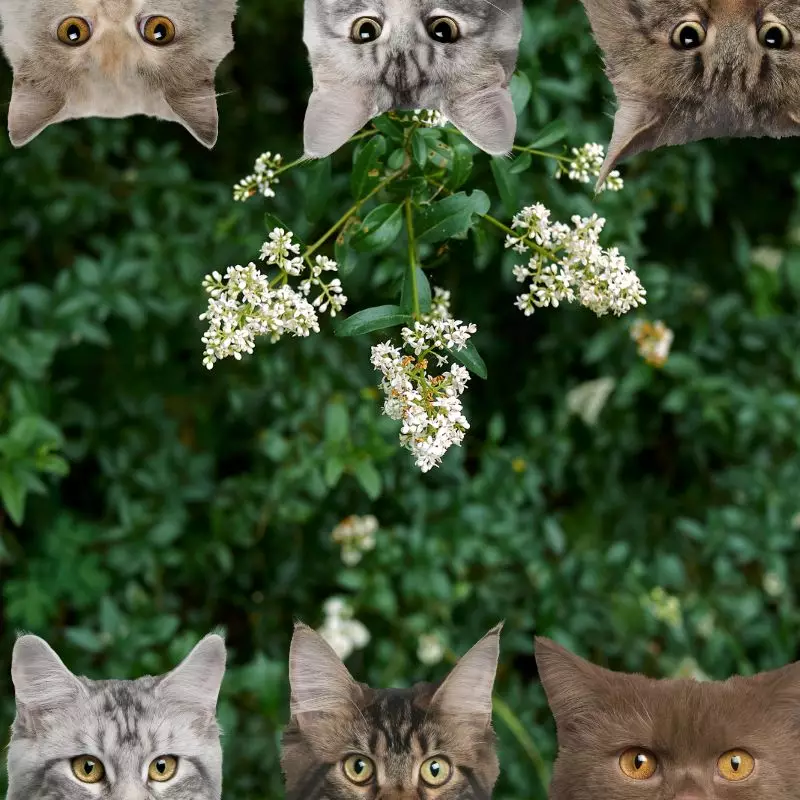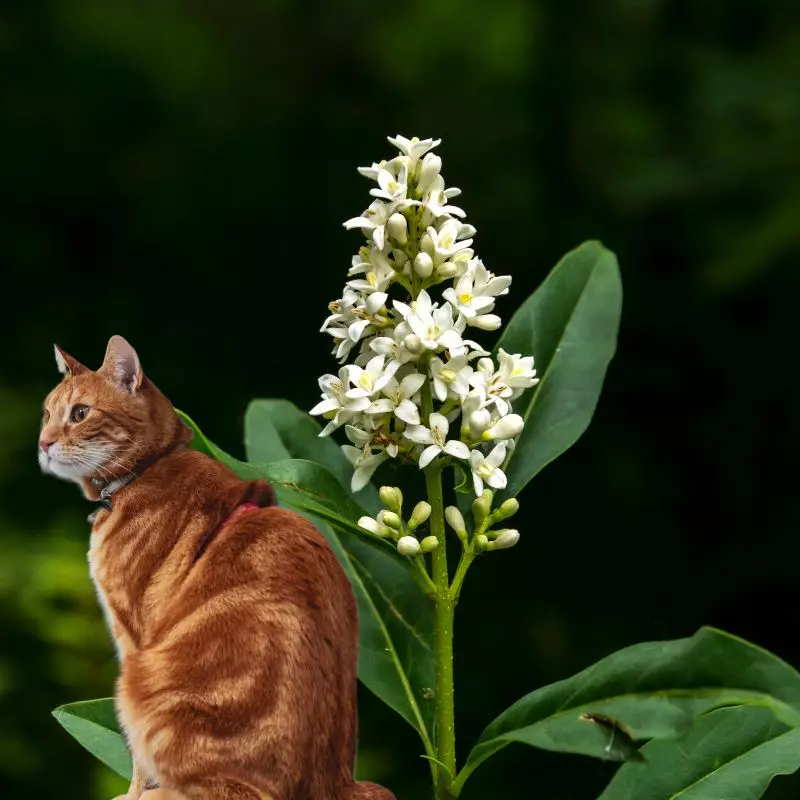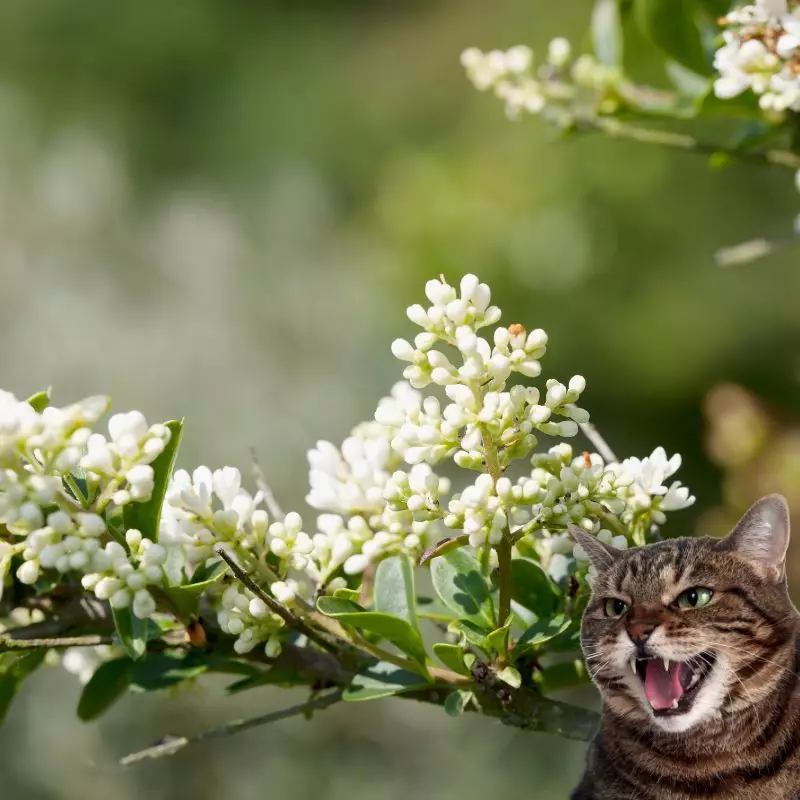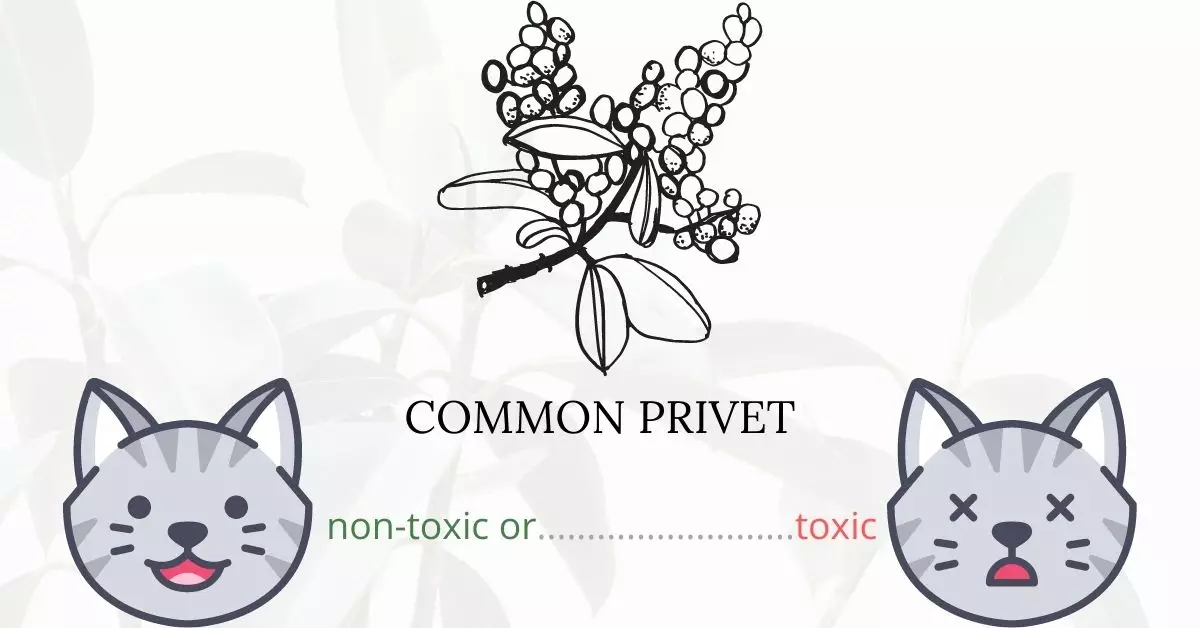Yes, Common Privet (also known as Amur, Wax-leaf, or simply Privet) is toxic to cats. This bushy evergreen shrub contains compounds like cardiac glycosides, saponins, and protoanemonin, which are considered harmful to animals, including cats. If ingested, a cat may exhibit symptoms such as drooling, abdominal pain, diarrhea, colic, and depression. While some symptoms may appear mild, it’s imperative to consult a veterinarian immediately in any suspected case of poisoning.
This article was crafted in collaboration with a team of experienced DVMs (doctors of veterinary medicine). Their invaluable insights ensure that our readers receive accurate and up-to-date information about the potential risks of various plants, with a focus on Common Privet in this context. Furthermore, our research extends to high-authority websites, including the ASPCA and PetMD, guaranteeing comprehensive and trustworthy information on every plant discussed.
Clinical Signs of Common Privet Poisoning in Cats

When a cat comes into contact with, smells, or ingests parts of the Common Privet shrub, it may exhibit specific signs due to the toxic compounds present in the plant. Here’s a breakdown of the potential symptoms and the reasons behind their occurrence:
- Appetite Loss: The toxic compounds in Common Privet can affect the cat’s digestive system, leading to a decreased desire to eat. This is a body’s natural response to prevent further ingestion of harmful substances.
- Diarrhea: The saponins and other irritants found in the shrub can disrupt the normal functioning of the cat’s gastrointestinal tract, resulting in diarrhea. This is the body’s way of expelling the toxins quickly.
- Gastroenteritis: This is an inflammation of the stomach and intestines. When a cat consumes the privet, the toxic compounds can irritate these organs, leading to symptoms like pain and swelling.
- Elevated Fast Heart Rate: Cardiac glycosides present in the Common Privet can interfere with the heart’s electrical activity. As a result, a cat may experience an increased and potentially irregular heart rate.
- Loss of Physical Coordination: The neurotoxic effects of some of the compounds can impact the cat’s nervous system, making it challenging for the cat to move or walk correctly.
- Lethargy: As the cat’s body battles the effects of the toxins, it may redirect its energy towards detoxification and healing, causing the cat to appear more tired or unresponsive than usual.
Always consult with a veterinarian if you suspect your cat has come into contact with or ingested any part of the Common Privet shrub.
First Aid and Treatment of Common Privet Poisoning in Cats

Standard poisoning treatment in cats usually involves flushing your cat’s mouth with water, inducing vomit to clear up your cat’s stomach, performing gastric lavage, administering activated charcoal, and intravenous fluid therapy. Support treatment will be given accordingly by the veterinarian depending on the specific needs of your cat. Other medications for heart conditions and other symptoms may also be prescribed by the vet as needed by your cat.
Recovery from Common Privet Poisoning in Cats

Common privet poisoning cases are rarely lethal and the full recovery of your cat is guaranteed provided that he or she received appropriate veterinary care and treatment. Ask your vet for guidance in post-treatment care and be sure to follow his advice.
Once you get home with your cat, continue giving ample fluid to clear his or her stomach. Keep him or her warm and comfortable inside your house as he or she may still be traumatized from the poisoning experience.
Prevention of Common Privet Poisoning in Cats
If you have a common privet hedge in your yard, remove it and replace it with something that is less dangerous for your cat. Limit your cat’s outside freedom and supply cat-safe grasses and plants that he or she can eat without harming his or her health. You may allow your cat to engage in natural and instinctual behavior by cultivating cat-safe plants and grasses both indoors and outside.
If you love plants but have cats at home, check out these lists:





